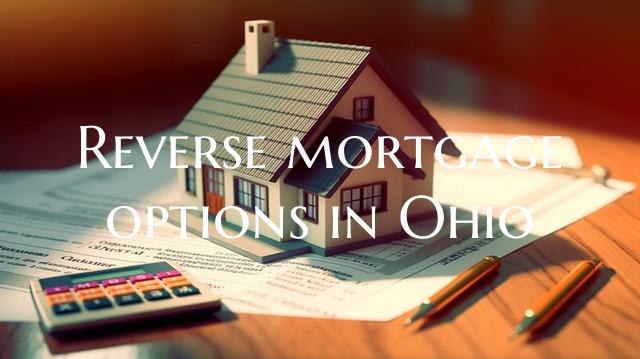Reverse mortgage options in Ohio

Are you a homeowner in Ohio who is considering financial options to secure a comfortable retirement? One option worth exploring is a reverse mortgage, which can provide financial relief and flexibility for seniors who own their homes. In this guide, we will delve into the details of reverse mortgage options available in Ohio and how they can benefit eligible homeowners.
What is a Reverse Mortgage?
A reverse mortgage is a type of loan that allows homeowners aged 62 and older to convert a portion of their home equity into cash without having to sell their home or make monthly mortgage payments. Instead, the loan is repaid when the homeowner moves out of the house or passes away, typically through the sale of the property.
Reverse Mortgage Options in Ohio
In Ohio, homeowners have access to several types of reverse mortgage options, including Home Equity Conversion Mortgages (HECMs), proprietary reverse mortgages, and single-purpose reverse mortgages. HECMs are the most common type of reverse mortgage and are insured by the Federal Housing Administration (FHA).
HECMs offer several advantages, including flexible disbursement options, non-recourse loans (which means the borrower or their heirs will never owe more than the home is worth), and the ability to use the funds for any purpose. Proprietary reverse mortgages are offered by private lenders and may have higher loan limits than HECMs, while single-purpose reverse mortgages are typically offered by state and local government agencies or non-profit organizations for specific purposes, such as home repairs.
Benefits of Reverse Mortgages in Ohio
For eligible homeowners in Ohio, a reverse mortgage can provide a range of benefits. These may include:
1. Supplemental Income: By tapping into their home equity, homeowners can receive a steady source of income to cover living expenses, healthcare costs, or other financial needs. 2. Debt Consolidation: Reverse mortgages can be used to pay off existing mortgage loans or other debts, simplifying the borrower's financial situation. 3. Aging in Place: With the financial support from a reverse mortgage, homeowners can afford necessary home modifications to age in place comfortably. 4. No Monthly Mortgage Payments: Unlike traditional mortgages, reverse mortgages do not require monthly payments, offering relief to those on fixed incomes.
Considerations Before Applying
Before applying for a reverse mortgage in Ohio, homeowners should consider several factors, including:
- Eligibility requirements: Applicants must be at least 62 years old, own their home outright or have a significant amount of equity, and use the property as their primary residence. - Financial implications: Borrowers should understand the costs associated with a reverse mortgage, such as origination fees, closing costs, mortgage insurance premiums, and interest charges. - Loan terms: It is important to carefully review the terms of the loan, including interest rates, repayment options, and potential consequences for non-compliance.
In conclusion, reverse mortgages can be a valuable financial tool for eligible homeowners in Ohio looking to access their home equity while maintaining ownership of their property. By exploring the various reverse mortgage options available and considering their individual financial needs, homeowners can make informed decisions to secure their financial future in retirement.
